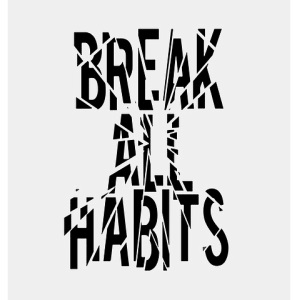5 Bad Habits Millennials Need To Avoid

Millennials are often viewed as a generation of self-centered, entitled, and demanding individuals. While that may be an overreaction to the truth, there are some things that millennials in the workforce should be mindful of today.
Stereotypes can be difficult to overcome, but it’s worth it for millennials to avoid these habits that are seen as typical for their generation:
1. Limiting their forms of communication
Millennials are most content sending a text or email rather than engaging in a conversation by phone or in person. In the workforce, it should be understood that this mindset is not always seen in a positive light. Be open to a variety of communication forms and embrace a phone call over an email in order to showcase a little flexibility.
2. Talk less and listen more
Millennials tend to act overconfident and a little too into themselves. In an office setting, try to talk less and listen more. You’ll be seen as different, trainable, willing to learn, and perhaps less obnoxious. If you are amongst those with more experience, then listening more may help you learn more in the process.
3. Staying connected
Technology has always been at the fingertips of the millennial crowd. Try to take a break from technology and unplug from your device and computer. Those in your office, especially people that are not as tech-focused, will notice that you are more approachable, attentive, and not addicted to technology. Be open to others and bring your head up once and awhile for a break.
4. Multitasking is out
Multitasking used to be a buzzword for excellence and getting things done. However, it is officially out. Millennials are used to instant gratification when it comes to information and working at a fast pace, but people are now realizing that multitasking isn’t effective. Multitasking could lower your productivity and performance.
5. Making Assumptions
Office environments have become more casual. Flex days, dress codes, and when you show up have become more flexible and less demanding. Don’t assume that everyone agrees with your actions and behaviors. If you are not sure, then find someone to ask. What you wear and how you behave matters. Take the time to ask and observe instead of assuming you know how others feel.
Millennials get a bad rap at times. Be sure to not form to these habits and you’ll be taken more seriously in the office and throughout your career.
Your comments are greatly appreciated. Please let us know how we are doing!
Gary Brunson
gary@myclearfocus.com
Debra Rider
debra@myclearfocus.com
574.361.2674
Sustainable Growth & Profit Consultant, Coach, Mentor and Counselor/Therapist for Business Owners and Professional.


 Are bad habits holding you back? Discover success both personally and professionally by taking control over bad habits and making permanent changes to improve yourself. You have the power to create positive habits for yourself.
Are bad habits holding you back? Discover success both personally and professionally by taking control over bad habits and making permanent changes to improve yourself. You have the power to create positive habits for yourself. Succession has commonly been thought of as for the purpose of retirement. While true, it is also a way that you can open your company up for a new opportunity. Every business should have a succession plan in order to carry on into the future. What if succession planning was a way to benefit your business? A strategic approach would do just that and help you not only survive but thrive.
Succession has commonly been thought of as for the purpose of retirement. While true, it is also a way that you can open your company up for a new opportunity. Every business should have a succession plan in order to carry on into the future. What if succession planning was a way to benefit your business? A strategic approach would do just that and help you not only survive but thrive.